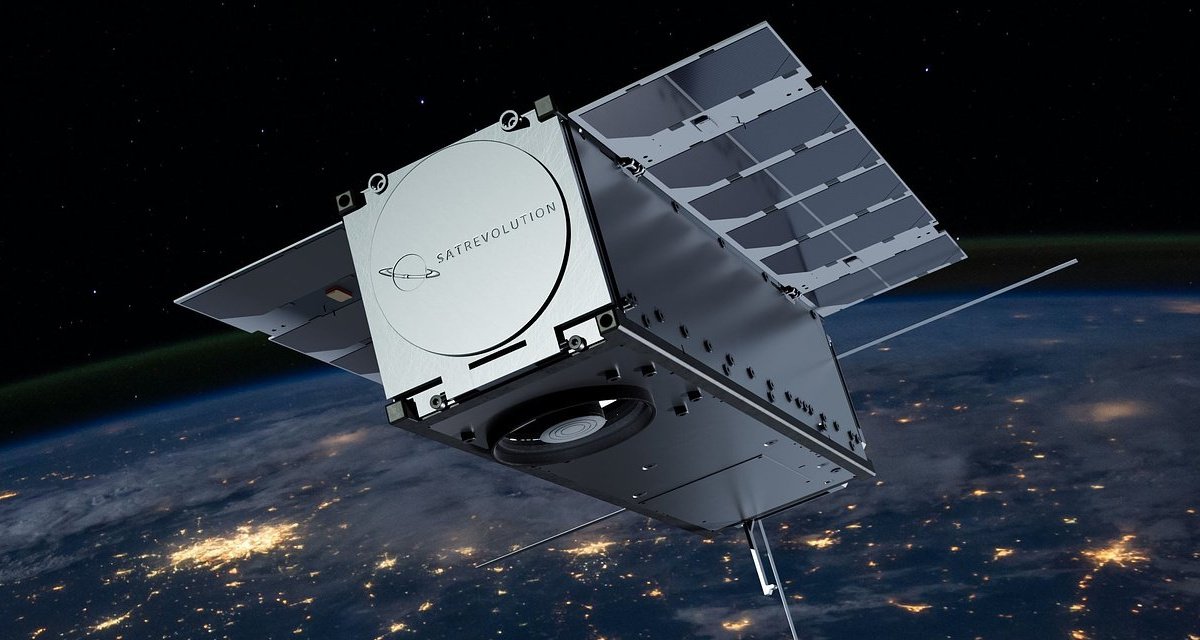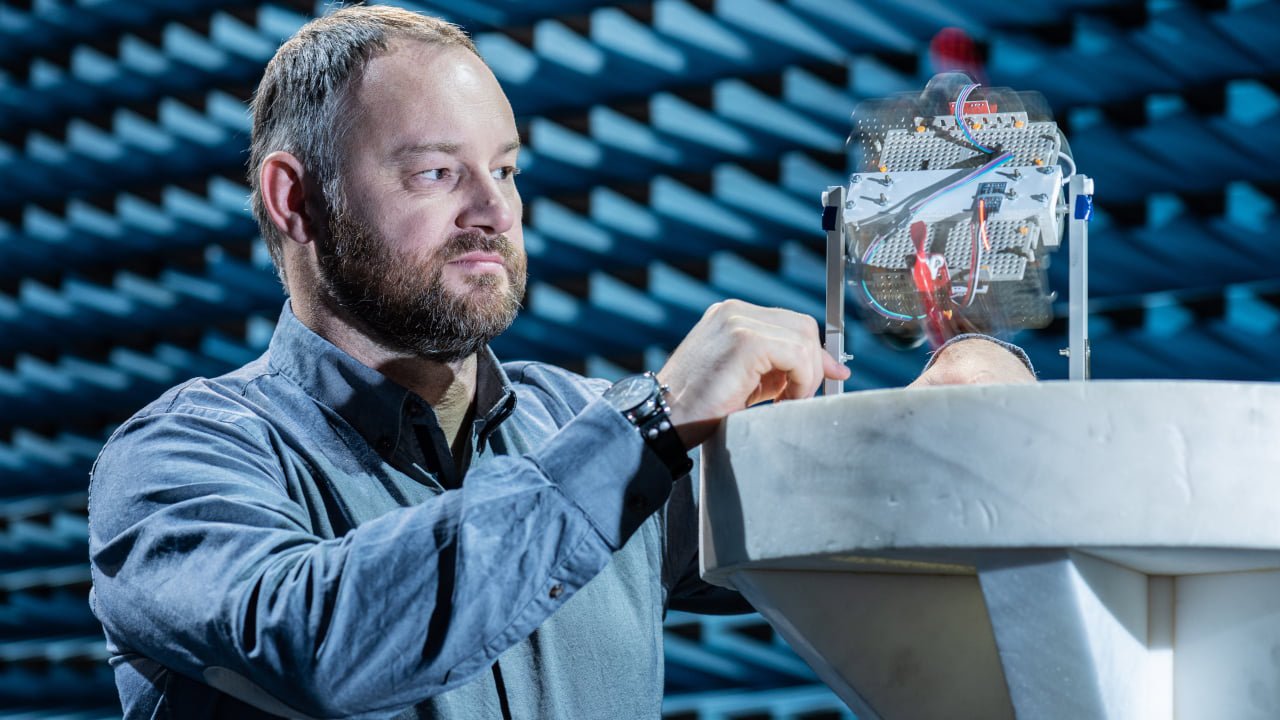We're looking up! How does Polish spacetech grow?
Last year's SpaceTech Analytics report indicated that at the end of Q3 2021 the spacetech industry consisted of 12,000 companies and 5,000 investors. The sector was valued at USD 380 billion in 2020. However, space technologies are developing really dynamically, and according to estimates, in the next decade the number of launched satellites will triple, and the market value of the sector will increase to $10 trillion in 2030. How are Polish start-ups faring in space?
According to data from the SpaceTech Analytics report, navigation and mapping (2820 companies), cloud solutions (2406 companies), manufacturing (1048 companies), services and consulting (817 companies) and satellite communication (718 companies) are among the most popular sectors of the spacetech industry. The undisputed leader, both in terms of the number of companies and the value of financing they receive is the North American region, value of which amounted to 102 billion dollars in Q3 2021. Second place goes to the APAC with a value of 41.7 billion dollars. Europe ranks third with an estimated value of USD 31.6 billion.
The SpaceTech Analytics report also shows that 33 companies operate in the space sector in Poland. However, this numer is growing as we write this text. In November 2021, during Congress 590 in Jasionka near Rzeszów, the establishment of the Cluster of Space Technologies was announced. It is an organization that was founded as an initiative of EXATEL – a Polish telecommunications operator. Its aim is to expand cooperation between research organizations, commercial companies and representatives of space environment institutions. Although it has been operating for several months, the cluster currently accounts for 85% of the national space sector's potential. The organization also aims to develop competences in the field of space techniques and technologies.
As the creators of the cluster point out, one of their ambitious goals is to design and launch the first fully Polish observation microsatellite constellation by 2026. The project, operating under the name of Satellite Earth Observation System (SSOZ), has already been included in the National Reconstruction Plan.
ICEYE to warn of possible natural disasters

The Polish space sector is already successful. At the beginning of February ICEYE, a Polish-Finnish start-up from the space industry, closed their D round of 136 million dollars. ICEYE is a space start-up founded in Warsaw, but its headquarters are in Helsinki. It's working on surveillance satellites and software used for them. It owns, among others, the world's largest constellation of observation satellites with synthetic aperture (SAR) – which allows to create pictures of the planet regardless of weather conditions and creates software that informs users about natural disasters in real time.
- We've watched the company prove the impossible, possible by launching the world’s first miniaturised SAR satellite capable of imaging the planet day and night, to now having grown into being the world’s largest operator of SAR imaging satellites - said James Bruegger, Chief Investment Officer of the Seraphim Space Fund, that invested in the start-up.
ICEYE also wants to develop cooperation with Tokyo Marine Holdings, one of its investors, in the field of providing customers with digitally advanced products and services that improve the operation of the insurance industry. Companies will also work to develop technological response to dangerous and increasingly frequent natural disasters, which are, among others, a consequence of climate change.
SatRevolution working on international cooperation

SatRevolution has recently informed that it had signed a contract with the country of Oman to design and build another satellite. It is another Polish company that deals with earth observation and taking precise satellite images enabling, among others, environmental monitoring. Start-up designs and creates nanosatellites, built of small modules, whose weight ranges between 1 kg and 10 kg. SatRevolution has been operating since 2016 and in addition to creating and operating satellites, it also deals with data analytics and creating real-time constellations of Earth observation. The SatRevolution factory in Wrocław currently employs approx. 65 people
The company has already fruitfully cooperated with Oman – last year it has signed a contract for the construction of a satellite patrolling low Earth orbit, and ultimately a dozen such objects are to be built. As indicated by SatRevolution's CEO Grzegorz Zwoliński, the satellite is likely to be launched this summer in cooperation with Virgin Orbit. This collaboration is not accidental, as Richard Branson's company has already invested $5 million in SatRevolution.
Thorium Space plans to go public

The company we included on this year's list of start-ups worth watching is Thorium Space. The company designs and constructs innovative telecommunications systems that are designed to work on unique broadcast frequencies, enabling electronic beam control and faster data transmission.
Currently, Thorium Space is working on a globally innovative solution in the field of space telecommunications - as part of the NCBiR project, it is creating a transponder and an E-band antenna (frequency range used by networks operating in the GSM standard), which will allow to increase the transmission speed from Satellite to Earth as well as between satellites.
According to the company, at the beginning of November 2021 it was valued at PLN 103 million (the financing round was not announced). At the same time, it also finalised an R&D grant in the amount of PLN 47 million, which, compared to the grants already obtained, gives a total amount of PLN 75 million.
The company plans to go public on a large European technology market in 2022 – in this respect, it takes into account the French or Dutch stock exchange. Thorium Space is also constantly expanding its team, mainly in the fields of FPGA programming, RF microwave and image analysis, which will allow the company to increase its capacity and carry out several large projects in parallel.
Aerobits wants to speed up changes in the aviation market
At the end of 2021, Aerobits, another spacetech startup announced cooperation with the Polish Air Navigation Agency and EXATEL. Their unmanned aerial vehicle (UAS) technology has an extremely wide range of applications and can be deployed in the civil, commercial and military sectors.
As the creators of Aerobits point out, currently the unmanned aircraft is still more "manned" than "unmanned" and operates mainly in RPAS mode, i.e. with limited autonomy, which results from the method of integration of such vehicles into the airspace. As they point out, this is one of the global challenges that aviation is facing. Aerobits supports international and national initiatives to accelerate the integration process by providing relevant subsystems.





